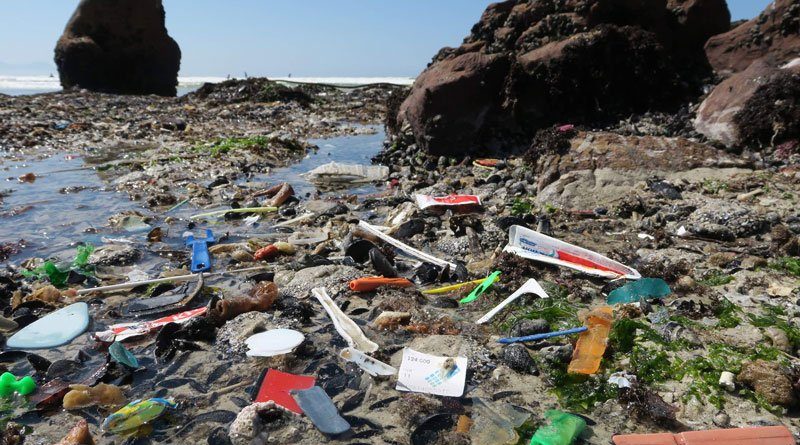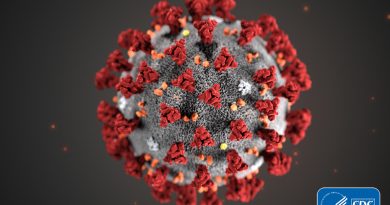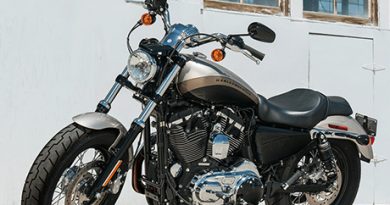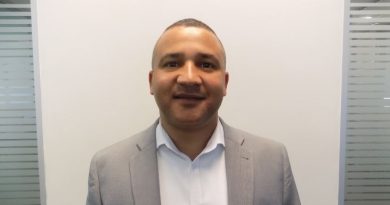Willard Batteries Beach Cleanup Initiative Set for September
As a follow up to the launch of the limited-edition Willard BLUE battery, aimed at highlighting the threat that plastic poses to oceans and beaches, Willard Batteries in partnership with The Beach Co-op has scheduled beach clean-ups in the Western Cape, PE and KZN in September.
The Beach Co-op founder Aaniyah Omardien says there is growing concern about the amounts of plastic and other waste entering the sea. “We needed a practical tool to track the amounts of litter at sea to identify whether specific measures to address the problem are working or not. Collecting rubbish washed up on beaches is the easiest way to track litter at sea, and helps reduce the amounts of plastic in the environment, but it is time-consuming to record all the litter.
The most common pollution found on beaches and dubbed the Dirty Dozen by Beach Coop which has identified 12 types of litter most commonly found on beaches. These are shown in the diagram.
The Beach Co-op is developing a shared data platform that will allow those engaged in beach cleanups to interact and share their findings. This will contribute to the understanding of beach and marine litter at the national level and help provide a robust rationale for national campaigns.
Professor Peter Ryan, Scientific Advisor of The Beach Co-op, has been monitoring beach litter since the 1980s to ascertain the impact that ingested plastic has had on seabirds.
“My research was prompted by the growing number of records of plastic being found in the stomachs of birds, such as albatrosses and petrels. At that time, no-one knew anything about the volumes of plastic in the ocean around South Africa. I decided to go on a road trip to find out how much plastic was being washing up on our beaches. I’ve repeated this survey every five years.”
“A lot has changed over the last three decades, not least the intensity of coastal development. Packaging has also become more ‘sophisticated’. We now have sports drink bottles that need a lid for their lids, and sweets are wrapped individually, even though they come in a plastic bag. Such redundancies didn’t exist in the 1980s. They have caused the litter stream to grow even faster than our burgeoning human population.”
“Counting and weighing each item and checking the manufacturer’s marks to learn the origin is a full-time job. Such data does provide invaluable information on how we are failing to properly manage solid waste.”
Ms Omardien wants her organisation’s clean-ups to generate more than awareness and a short-term respite from the flood of litter washing ashore. She wants to contribute useful data and help assess whether the measures taken to tackle the problem are making a difference.
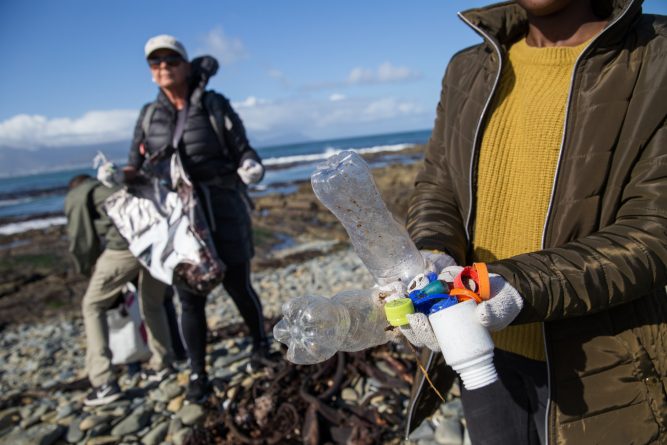
Volunteers recorded more than 100 000 ‘Dirty Dozen’ items during clean-ups in 2018. “We have chosen three commonly found – chip packets, earbuds and plastic bottles, as our Plastic Free July and beyond campaign targets. We’re not advocating giving up plastics – they are an essential part of our modern society, and switching to alternatives in many cases would result in much greater environmental impacts than continuing to use plastics. But there are certain applications where you can just say no,” says Ms Omardien.
“For example, plastic earbud stems can turn into lethal weapons, being washed out to sea with sewage and being ingested accidently by marine animals. Even those that break down add to the microplastic pollution that releases toxic chemicals and tens of thousands of them are washed up on beaches. The Beach Co-op has collected more than 10 000 plastic earbuds on 70 beach clean-ups in the past two years. People need to find an alternative to earbuds,” explains Professor Ryan.
Professor Ryan says that drinking bottles are another sore point. “A staggering 60 billion PET bottles are produced each year, many destined to be discarded within minutes of being bought. At Inaccessible Island – one of the world’s most remote and pristine islands located in the South Atlantic Ocean – the number of PET bottles washed up on its beaches are growing faster than any other litter item. We suggest to rather carry your own reusable water bottle or buy a can. Used cans have a higher inherent value and are more likely to be recycled.”
“Chip packets are the third target for the #PlasticFreeMzansi campaign. The volume of waste of these packets has surged from 2018 to 2019. Having snacked on the go, people do not properly discard of the packaging,” he says.
In addition to beach clean-ups, The Beach Co-op offers data collation and analysis services for organisations and businesses wanting up-to-date and rigorous quantitative and qualitative studies. Visit their website for more information. www.thebeachcoop.org
People participating in the campaign to purchase a Willard BLUE battery will stand a chance to win a Big 5 Sea Safari in Hermanus, with luxury accommodation at the Marine Hotel. To enter the competition, customers must register the purchase of their new BLUE batteries online at https://willard.co.za before the 30th of September.
Safety with Vehicle and Car Batteries https://t.co/SNrG4INkmA #ArriveAlive #RoadSafety #Batteries pic.twitter.com/1WxqAnj6rr
— Arrive Alive (@_ArriveAlive) May 29, 2019

